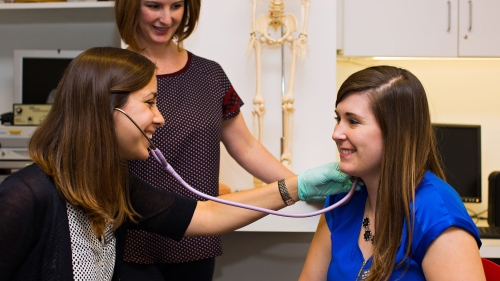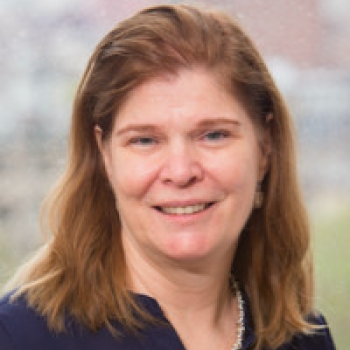

Dr. Celia Stewart is a tenured Associate Professor in the Department of Communicative Sciences and Disorders at NYU’s Steinhardt School of Culture, Education, and Human Development. She teaches courses including Voice Disorders, Therapeutic Procedures in Speech Pathology: Advanced Voice Disorders, and Motor Speech Disorders. In addition to her academic role, Dr. Stewart's clinical work focuses on professional voice care, transgender voice modification, and neurogenic voice disorders.
Her research and publications span topics such as the singing voice, spasmodic dysphonia, transgender voice, dysphagia, Parkinson’s disease, and Huntington’s disease. She is frequently invited to present internationally, leading workshops in Belgium, France, Greece, Italy, the Netherlands, Sweden, Canada, and across the United States. Dr. Stewart is also the coauthor of Voice Rehabilitation: Testing Hypotheses and Reframing Therapy.
Selected Publications
Stewart, C. F., Reaper, L., & Hodge, V. (2025). Six Decades of Female Professional Radio Broadcasters: Their Mean Speaking Fundamental Frequency and Use of Vocal Fry. Journal of Voice: Official journal of the Voice Foundation, S0892-1997(25)00271-1. Advance online publication. https://doi.org/10.1016/j.jvoice.2025.07.008
Stewart, C.F. Kling, I.F., & D’Agosto, A. (2024). Modal Register, Vocal Fry, and Uptalk: Identification and Perceptual Judgments of Inexperienced Listeners. Journal of Voice. In press Accepted on February 29, 2024
Zuim, A.F., Stewart, C.F., & Titze I.R. (2023). Vocal demands of musical theatre rehearsals: A dosimetry study. Journal of Voice. In press Accepted on October 18, 2023.
Zuim, A.F., Stewart, C.F., & Titze I.R. (2021). Vocal dose and vocal demands in contemporary musical theatre. Journal of Voice. doi:10.1016/j.jvoice.2021.08.006
Rubino, M., & Stewart, C.F. (2018). Voice training methods in MFA acting programs. Voice and Speech Review, 12:1, pp. 24–34, DOI: 10.1080/23268263.2018.1435543
Stewart, C.F., & Kling, I.F. (2017). University practicum for transgender voice modification: A motor learning perspective. Perspectives of the ASHA Special Interest Groups, 2 (2017, SIG 10), pp. 102–108. Doi:10.1044/persp2.SIG10.102
Stewart, C.F., Sinclair, C.F., Kling, I.F., Diamond, B.E., Blitzer, A. (2017). Adductor focal laryngeal Dystonia: correlation between clinicians' ratings and subjects' perception of dysphonia. J Clin Mov Disord. 2017;4:20. doi:10.1186/s40734-017-0066-y
Blitzer, A., Brin, M.F., Stewart, C.F. (2015). Botulinum toxin management of spasmodic dysphonia (laryngeal dystonia): a 12-year experience in more than 900 patients. Laryngoscope.125(8):1751‐1757. doi:10.1002/lary.25273
